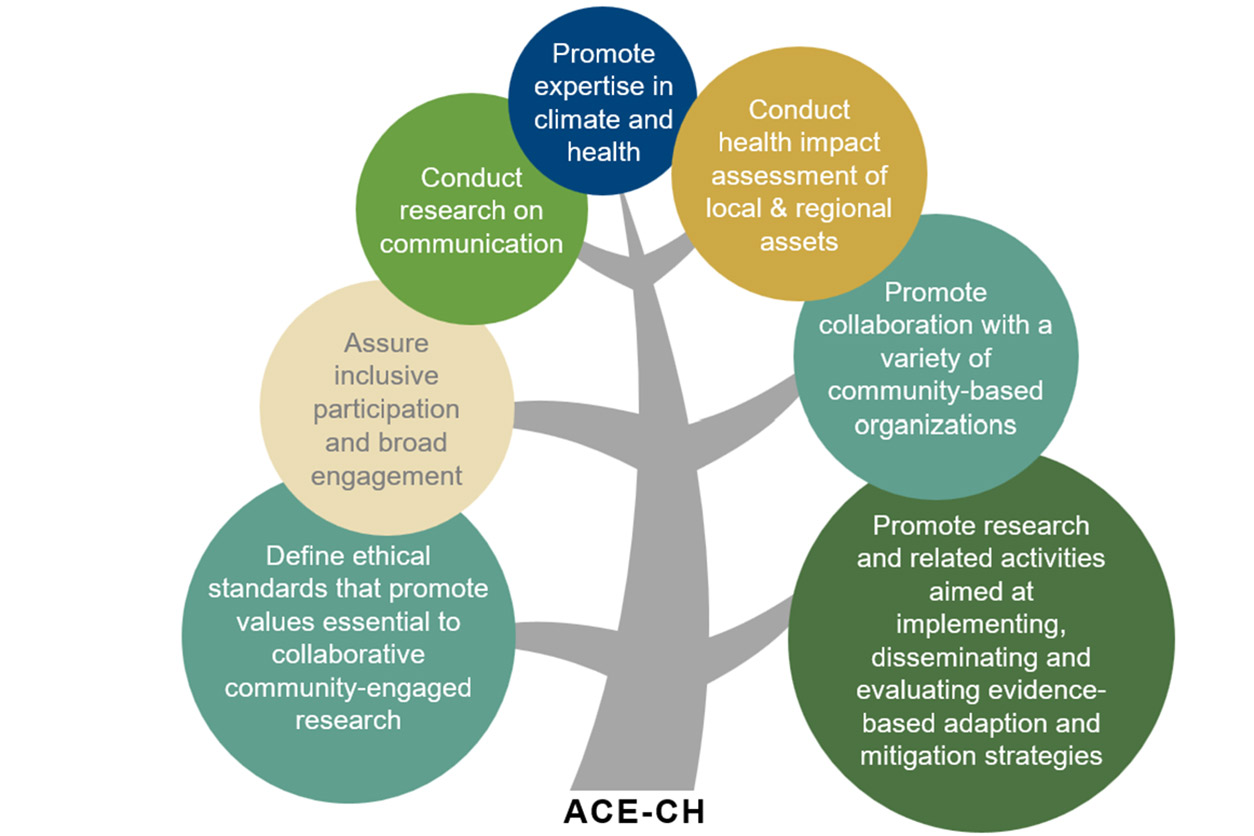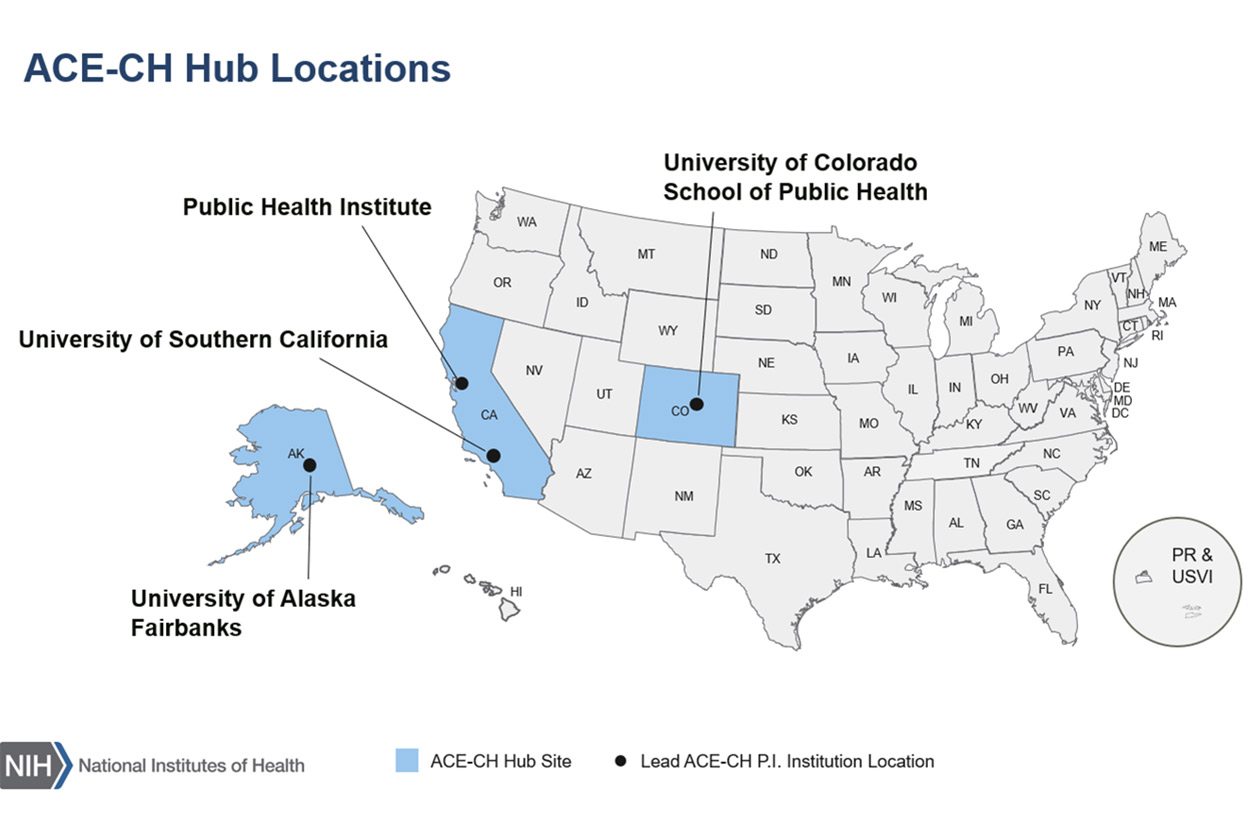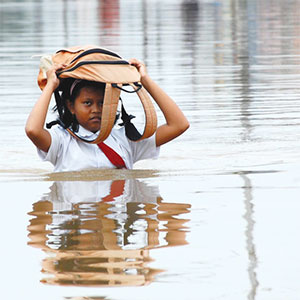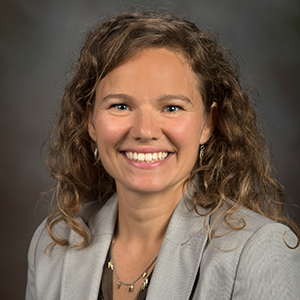The National Institutes of Health (NIH) Climate Change and Health Initiative recently awarded four sites funding as a first step in establishing the Alliance for Community Engagement on Climate and Health (ACE-CH). NIEHS plays a lead role in the cross-cutting NIH Climate Change and Health Initiative with the National Heart, Lung, and Blood Institute (NHLBI) serving as the ACE-CH administrative home.

The new ACE-CH program will work to build partnerships with vulnerable communities to understand their concerns and abilities to tackle climate-related health threats, while emphasizing health equity.
“There is no doubt that the extreme heat, floods, and wildfires fueled by climate change contribute to poorer health outcomes, particularly among economically disadvantaged communities and minority populations,” said NIEHS Director Rick Woychik, Ph.D. “These projects will help us better understand and address these effects.”
“Community-engaged research will be center stage in these efforts,” said Gary H. Gibbons, M.D., NHLBI Director, who serves with Woychik on the NIH Climate Change and Health Initiative Executive Committee.
The ACE-CH is modeled after the successful NIH COVID Community Engagement Alliance program, led by the NHLBI and the National Institute on Minority Health and Health Disparities.
The ACE-CH will use community-engaged research methods and outreach opportunities to build capacity, specifically in geographic areas where factors known as social determinants of health can cause residents to be highly vulnerable to the impacts of climate change. Social determinants of health are defined as the conditions in which people are born, live, learn, work, play, and age that affect a wide range of health outcomes.

Award locations
The new grants for ACE-CH are administered by NHLBI, under the guidance of Program Director Nishadi Rajapakse, Ph.D.
“We were intentional in prioritizing the communities of focus for ACE-CH to include communities most vulnerable to and affected by historical and emerging climatic change impacts,” Rajapakse said. “We focused on communities with existing health disparities, communities that are burdened by adverse social determinants of health, and communities that are already experiencing impacts of climate change or natural disasters.”
Four two-year awards enabled work to begin in March.
- University of Alaska Fairbanks. Principal Investigator: Stacy Rasmus, Ph.D., director of the Center for Alaska Native Health Research.
The University of Alaska site will focus on indigenous knowledge, attitudes, and beliefs about climate change and its effects on health and well-being in Alaska. The site will develop and test strategies to assess risk and resilience factors in rural Alaskan Native communities in highly impacted regions of the state.
- University of Colorado School of Public Health. Principal Investigator: Katherine Dickinson, Ph.D., assistant professor of environmental and occupational health.
The University of Colorado site will support climate change resilience among economically disadvantaged populations, communities of color, immigrants, and some occupational groups experiencing disproportionate impact in both urban and rural communities near Denver. The site will develop scientifically rigorous surveys to measure climate change and air quality concerns, beliefs, behaviors, information sources, assets, and desires regarding environmental justice.
- University of Southern California. Principal Investigator: Jill Johnston, Ph.D., associate professor of population and public health sciences.
The University of Southern California site will focus on community-driven approaches to environmental justice and health among families, immigrants, people of color, unhoused individuals, and elderly communities in Los Angeles and the City of Carson. The site will use spatial approaches to assess neighborhood-scale vulnerability, such as community air monitoring.
- Public Health Institute. Principal Investigator: Paul English, Ph.D., director of Tracking California.
The Public Health Institute site will establish continuous community engagement structures with local tribes and community-based organizations to reach American Indian tribal communities, immigrants, and agricultural workers in Lake County, California. The site will identify and understand health effects of harmful algal blooms and heat events on disproportionately affected populations and apply findings to improve communication and collaboration in response to these human health threats.

(Marla Broadfoot, Ph.D., is a contract writer for the NIEHS Office of Communications and Public Liaison.)









